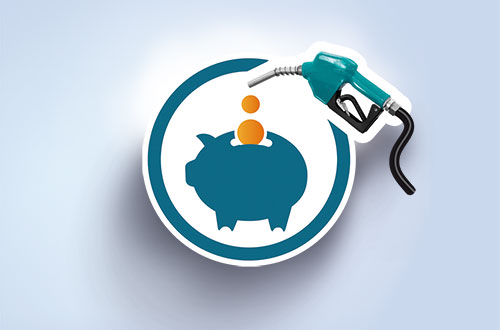#content#
OCU claims that, despite the oil prices going down, petrol is more expensive than before the crisis
10 abr. 201597,000 people have already joined www.quieropagarmenosgasolina.org (“I want to pay less for petrol”)
Madrid, 10 April, 2015. OCU denounces how, despite the fall in oil prices, Spaniards pay more for their petrol than at the beginning of the crisis in 2008. Comparing prices from 2008 with now, consumers paid 9 million euros more this Easter than during Easter 2008 even though the price of oil is now 30% lower than then.
The year the crisis began, oil was at $ 100 at Easter (a few months later it reached almost $ 150). However in Easter this year the price was around 56 dollars a barrel. Taking into account the price in euros, to offset the fall in the price of the euro against the dollar, in 2008 the price was 67 euros and this Easter 52 euros, which is 30% less.
OCU denounces that despite a significant drop in oil prices, current fuel prices are not lower than in 2008. Diesel prices, in the month of March 2008, were around € 1.13 per liter, while just before Easter this year (and after a slight fall), average prices in Spain were at € 1.156 per litre, i.e. 2.3% more expensive than seven years ago, even though oil was much more expensive then. In petrol, the difference is even greater, because if in 2008 the average price of this fuel was € 1.126 per litre, the Monday before Easter this year, it stood at € 1.267 per litre, 12.5% higher than then.
These price differences and because of the number of vehicles on the road, suppose a considerable amount of money when all the journeys which took place during these dates are taken into account. OCU estimates that each journey has been an average of thirty cents more expensive than at the beginning of the crisis, which means that in 2015 consumers spent nearly nine million euros more than in Holy Week before the start of the crisis. Three million for diesel and nearly six for petrol due to bigger price differences. And this despite the fall of more than 30% in the price of oil and, above all, lower household incomes due to the crisis.
It is OCU’s opinion that what happened this Easter is another example of the chronic lack of competition in the fuel distribution market, which prevents the prices of diesel and petrol reflecting developments in oil prices.
Given this situation and to promote competition in this difficult market OCU has launched the first collective purchase of fuel. Through the webpage www.quieropagarmenosgasolina.org over 86,000 people have already joined this initiative to get better fuel prices for everyone. The deadline to join the collective purchase promoted by OCU ends on 12 May. Once more, OCU wants to say thank you for the support of its more than 300,000 members, without whom none of these initiatives would be possible.
For more information (media): Eva Jimenez Tel.: 91 722 60 61 - ejimenez@ocu.org
www.ocu.org

